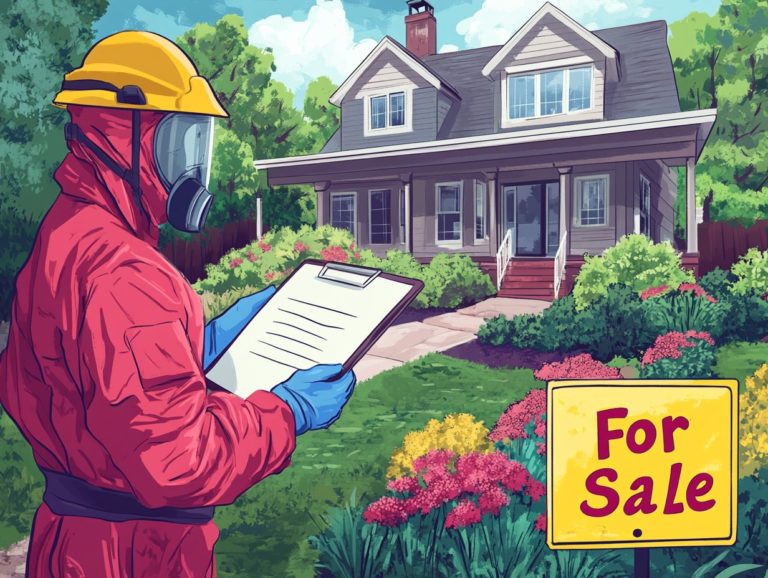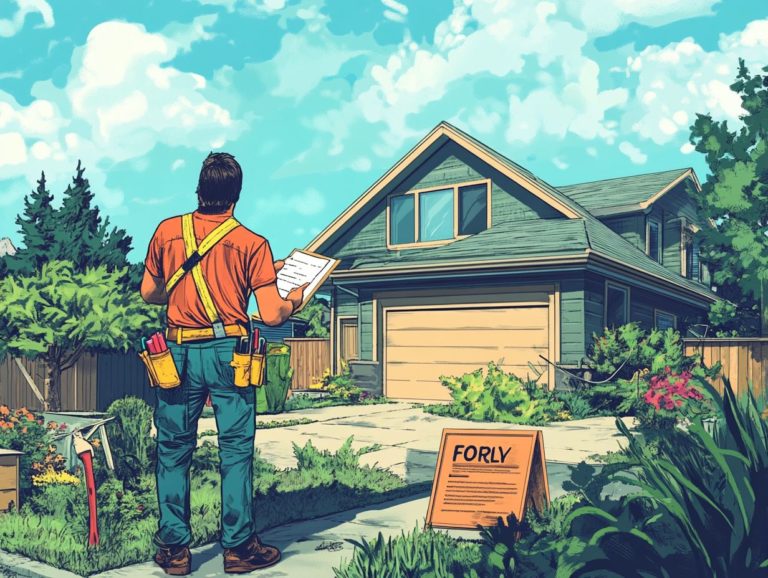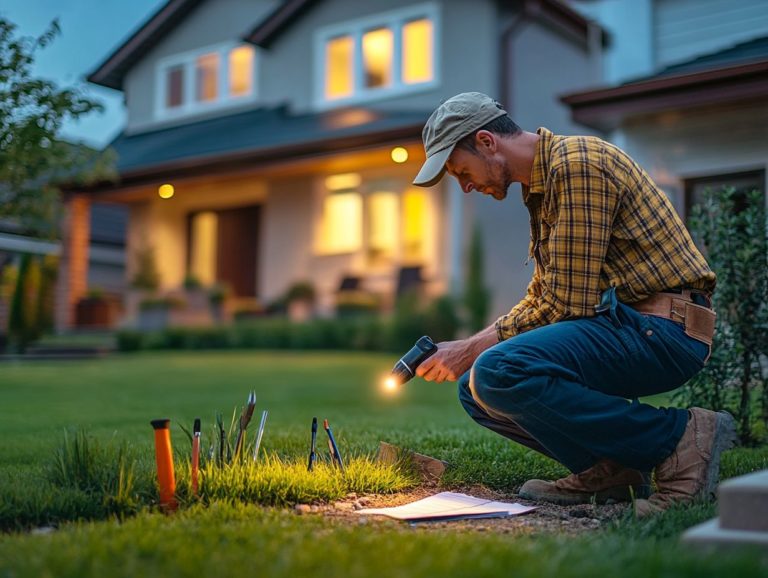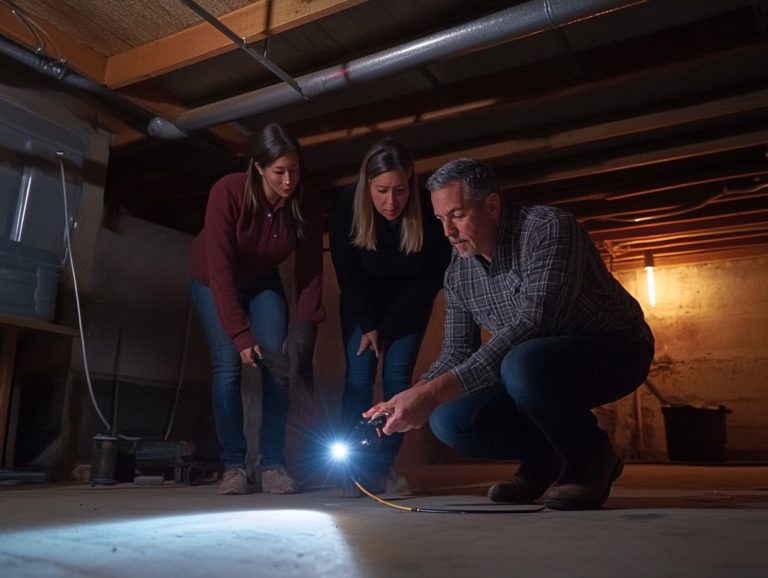The Impact of Home Inspections on Negotiations
When you’re buying or selling a home, the stakes are undeniably high, making home inspections a must-do step in the process.
These inspections uncover hidden issues, ranging from structural concerns to pesky pest infestations, and play a vital role in negotiations. Recognizing the significance of these assessments empowers both buyers and sellers to engage in informed discussions about necessary repairs and adjustments.
This article delves into how home inspections shape negotiations, highlights common findings you might encounter, and offers effective strategies for addressing them, ensuring a smoother transition for all parties involved.
Contents
Key Takeaways:
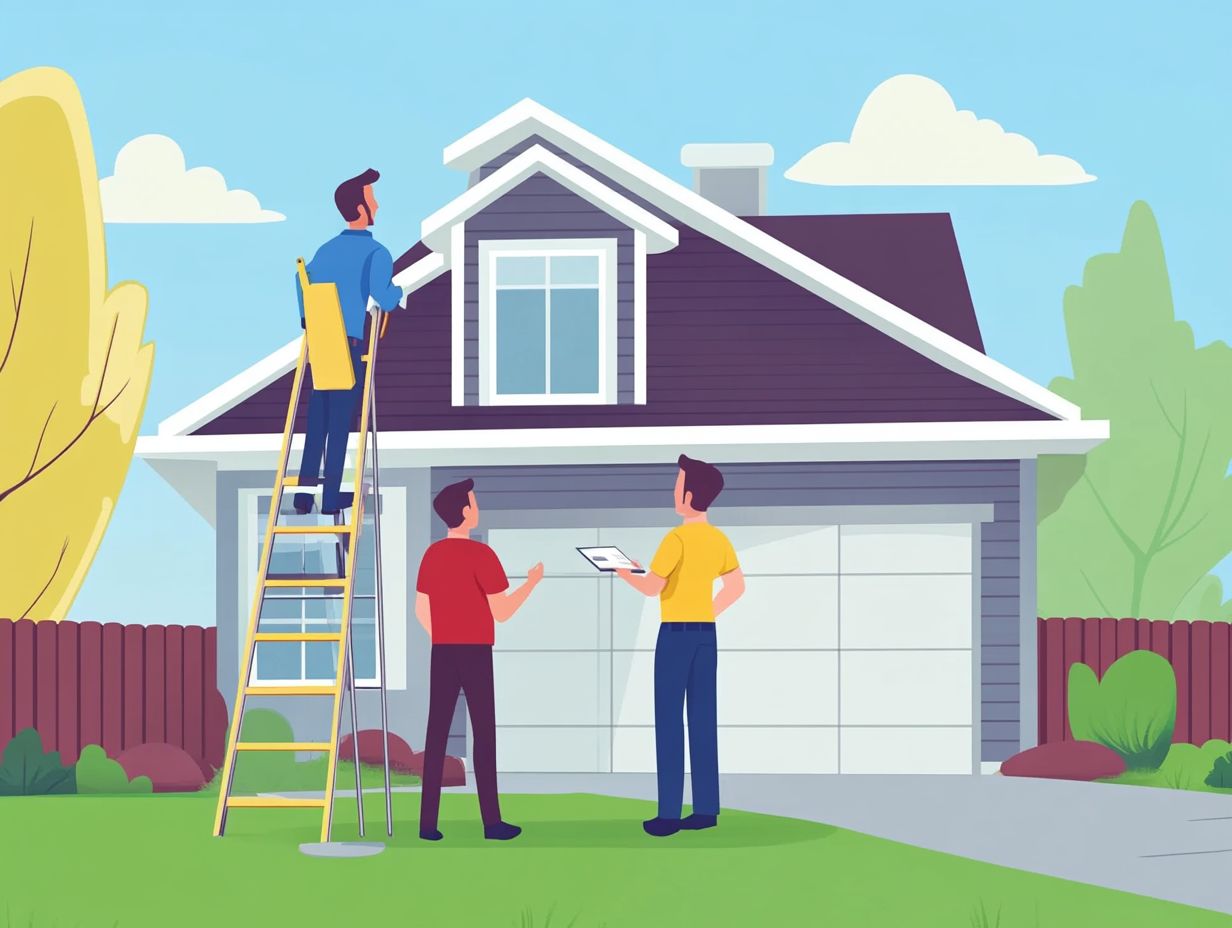
The Importance of Home Inspections
Home inspections serve as an essential pillar in real estate transactions, offering you a comprehensive insight into a property’s condition. They are crucial for ensuring safety and transparency, fostering trust among all parties engaged in the negotiation process.
A detailed inspection uncovers hidden defects and can significantly enhance the market value of the property by proactively addressing potential issues.
Buyers can use these findings to make smart choices, while sellers can leverage repair insights to elevate their property’s appeal to prospective buyers, ultimately paving the way for smoother closings.
Why Home Inspections are Necessary
Home inspections are essential for uncovering hidden defects and evaluating the overall condition of a property, ensuring safety for future occupants.
These assessments offer invaluable insights into the building’s strength and stability, pinpointing issues such as foundation cracks or roof leaks that could lead to significant problems in the future.
They often reveal problems with the water system, like outdated or malfunctioning systems, which can be quite costly to repair.
Having this information gives you the power to make informed decisions, while sellers can proactively address maintenance issues, thereby enhancing the property s value and market appeal.
Ultimately, these inspections serve as a crucial tool for both parties, facilitating a smoother real estate transaction.
How Home Inspections Affect Negotiations
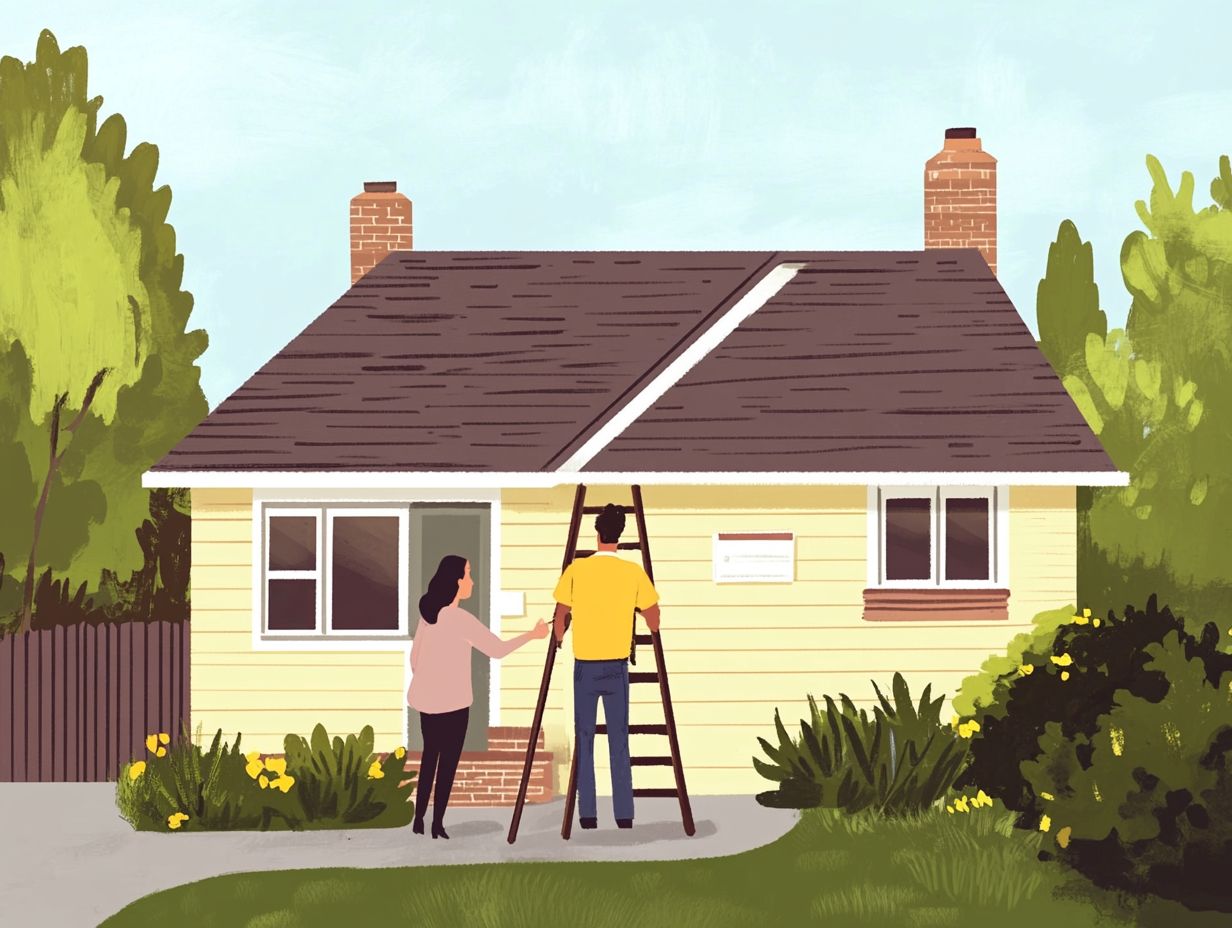
Home inspections play a pivotal role in the negotiation process of real estate transactions, highlighting the importance of home inspections in real estate deals and offering essential leverage for both buyers and sellers as they navigate discussions around the purchase price and repair requests.
Understanding this dynamic gives you the power to make informed decisions that ultimately impact the outcome of your deal.
Role of Home Inspections in the Negotiation Process
The role of home inspections in the negotiation process is crucial, providing you with essential insights into the property’s condition. Understanding the impact of home inspections on property value can serve as key points in negotiations that can greatly influence discussions.
By uncovering any underlying issues, they allow you to engage in more informed negotiations, effectively reducing the likelihood of surprises that could breed distrust.
When sellers proactively address safety concerns identified during the inspection, it fosters a spirit of transparency and open communication.
This proactive stance not only boosts credibility but also reassures you that your best interests are being prioritized. As a result, these findings allow both you and the other party to refine expectations and negotiate terms that truly reflect the property’s actual value and safety.
Common Issues Found during Home Inspections
During home inspections, you’ll encounter several common issues that could significantly affect a property’s market value. These may include structural problems, plumbing concerns, and potential electrical system issues.
Being aware of these factors gives you the power to make informed decisions in the real estate market.
Structural Problems

Structural problems uncovered during home inspections can pose serious risks to both the safety and integrity of a property. This makes them a crucial concern for you as a buyer or seller.
Foundation issues, for example, can create significant structural instability, leading to expensive repairs and negatively impacting your property s value. Roofing complications like leaks or poor ventilation also threaten safety and can pave the way for mold growth and higher energy costs.
These findings can change the dynamics of negotiations, as potential buyers may rethink their offers in light of these defects. Understanding these issues is essential. By addressing them proactively, you can prevent further deterioration and ensure a safer, more secure living environment.
Mold and Pest Infestations
Mold and pest infestations are serious concerns that often surface during home inspections. They threaten both air quality and the overall safety of your home.
These unwelcome guests can lead to health issues for anyone living there, particularly for individuals with respiratory conditions or weakened immune systems. Mold spores can float freely in the air, increasing the likelihood of allergic reactions and respiratory infections.
Pests like rodents and termites jeopardize the structural integrity of your property and introduce harmful pathogens and contaminants into your living space. The costs for fixing or cleaning up can skyrocket, as you may need to enlist professional services to eliminate these hazards and restore safe air quality.
You must prioritize safety to keep your home secure and consider preventative measures to sidestep these potentially expensive problems.
Electrical and Plumbing Issues
Electrical and plumbing issues often arise during home inspections, highlighting critical safety concerns that require your immediate attention.
These problems can include outdated wiring, faulty circuits, leaking pipes, or inadequate drainage systems, all of which present serious risks not only to the property but also to the health and safety of those living within it.
If you allow such issues to linger, you could face dangerous situations, including potential electrical fires or water damage that could significantly erode your property s value.
Given the serious implications of these challenges, it s essential for you, as a prospective buyer, to ensure a thorough examination of these systems. Addressing any defects before finalizing your purchase is key to protecting both your investment and your well-being.
Negotiating Repairs and Credits
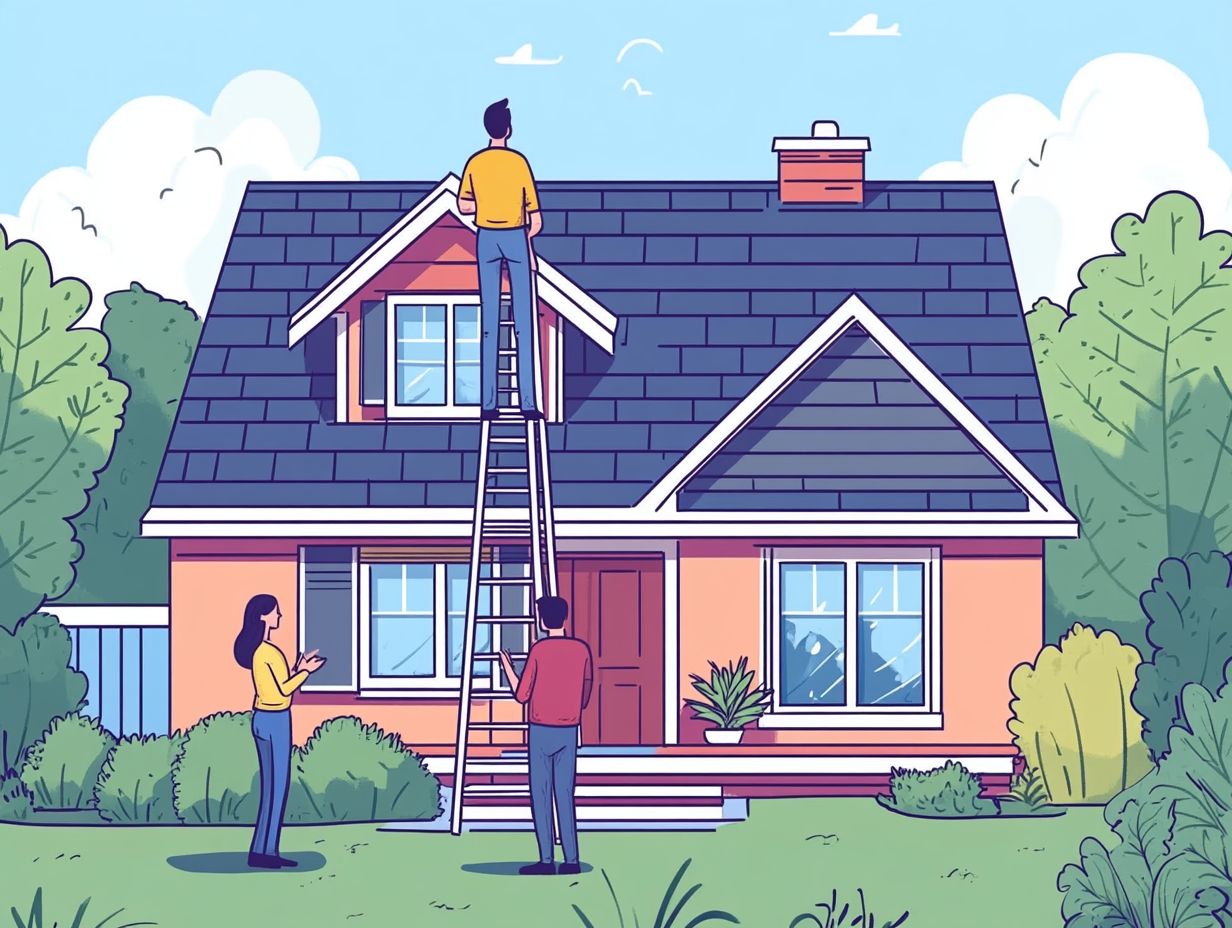
Negotiating repairs and credits based on inspection findings is an essential part of your home buying and selling journey, highlighting the importance of home inspections in real estate transactions.
This process gives you the power, whether you’re a buyer or a seller, to tackle any issues that arise and work towards outcomes that benefit both parties.
Strategies for Addressing Inspection Findings
Strategies for effectively addressing inspection findings empower you, whether you’re a buyer or seller, to find agreeable solutions that satisfy everyone involved, highlighting the importance of home inspections for real estate transactions.
- Engage in open dialogue to truly understand each other’s perspectives.
- Explore a variety of options, from negotiating repairs to offering credits that facilitate the deal.
- Approach the situation with a clear understanding of your needs.
- Sellers should be ready to accommodate reasonable requests.
This collaborative effort not only addresses specific concerns but also fosters trust, ensuring that both parties feel valued and supported throughout the transaction process. Achieving a balance can lead to a smoother transition and a more satisfactory outcome for everyone involved.
The Role of Professionals in the Negotiation Process
The role of professionals, like real estate agents and home inspectors, is vital during the negotiation process. They bring their expertise in inspections and provide valuable recommendations, highlighting the importance of home inspections in property sales, that can significantly benefit you as a client.
Don t wait to address these issues act now to protect your investment!
For peace of mind regarding your home, consider scheduling an inspection or consulting a professional today!
Real Estate Agents and Home Inspectors
Real estate agents and home inspectors play essential roles in negotiations. Understanding the role of home inspections in the home buying process can provide valuable insights and expertise that facilitate smoother transactions.
Agents have a deep understanding of market dynamics and property valuations. They effectively advocate for you, ensuring your offers and revised offers are strategically positioned.
Home inspectors provide crucial assessments of property conditions, playing a vital role in real estate transactions. They uncover potential issues that could influence negotiations.
This blend of expertise gives you the power to make informed decisions. It also fosters trust as you work through discussions.
A reliable agent creates a collaborative environment. They promote transparent communication among all parties involved.
This approach significantly enhances the likelihood of closing deals successfully and satisfactorily.
Tips for a Successful Negotiation
Want to ace your real estate negotiations? Here are some essential tips!
Successful negotiations in real estate hinge on effective communication and flexibility. This ensures that both buyers and sellers arrive at mutually agreeable terms.
Communication and Flexibility
Effective communication and flexibility are vital in successful negotiations. They guide you through the intricate landscape of real estate transactions.
When you engage with clarity and openness, you foster collaboration. Both sides feel valued and understood, cultivating trust.
This dynamic makes it simpler for you to voice concerns and explore options. Being adaptable allows you to respond to changing circumstances.
This promotes a sense of partnership rather than conflict. By emphasizing active listening and empathy, you can turn potential conflicts into opportunities for win-win solutions.
Ultimately, this leads to agreements that satisfy everyone’s interests. It paves the way for future collaborations.
Frequently Asked Questions
What is the impact of home inspections on negotiations?
Home inspections can greatly impact negotiations, as they provide valuable information about the property’s condition, affecting the final sale price and transaction terms.
Who typically pays for the home inspection?
In most cases, the home buyer pays for the inspection. This allows thorough examination to ensure no major issues affect the home’s value.
Can home inspections affect the sale price of a home?
Yes, they can significantly impact the sale price. If issues are found, buyers may request repairs or a lower sale price to compensate.
What happens if issues are found during the home inspection?
If issues are found, the buyer has several options. They can negotiate for repairs, request a credit towards closing costs, or ask for a price reduction.
Are home inspections required during the negotiation process?
Home inspections are not typically required but are highly recommended. They ensure buyers are aware of the property’s condition before finalizing the sale.
How long does the negotiation process typically take when home inspections are involved?
The process can vary based on the issues found and both parties’ willingness to agree. Effective communication is key to reaching a mutually beneficial outcome.
If you have more questions or need assistance, feel free to reach out!


